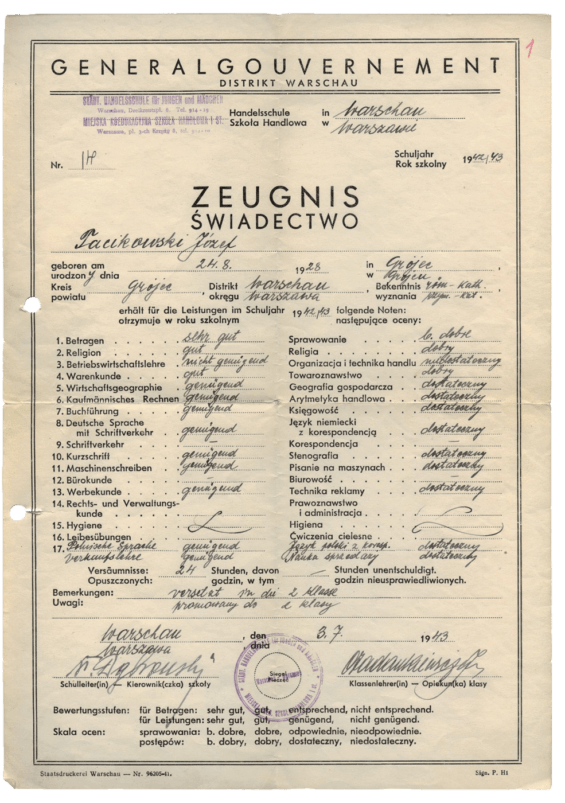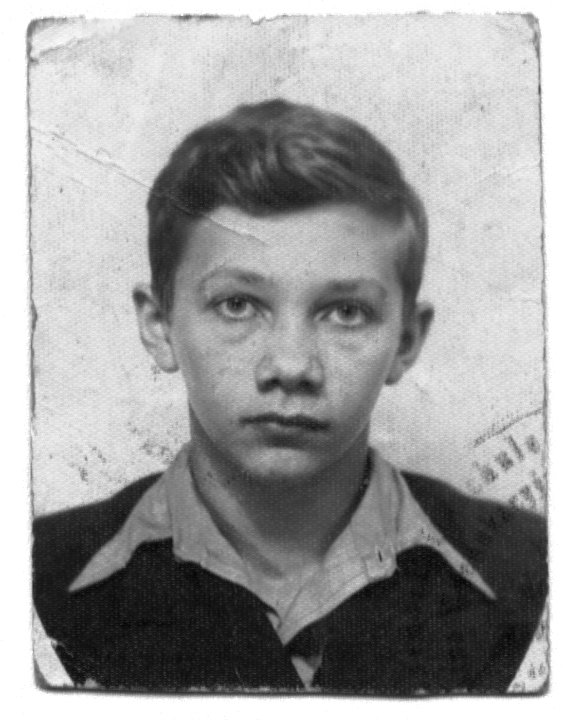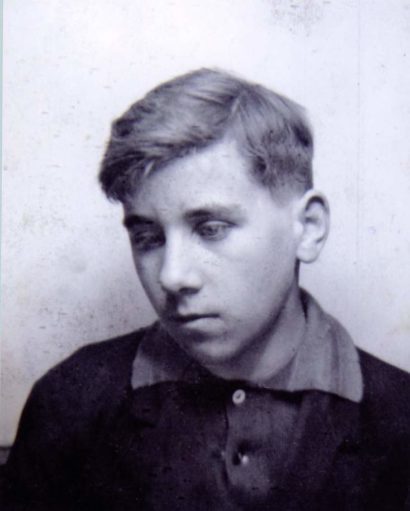Józef Tacikowski
born August 24, 1928
![]()
Józef Tacikowski, May 1943 (private collection)
“My Life was Destroyed”
The Tacikowski family lived in Włochy, a suburb of Warsaw. Józef and his brother Władysław, who was three years older, participated in the Warsaw uprising. They were arrested and deported. On October 22, 1944, they arrived at the Flossenbürg concentration camp. Władysław received prisoner number 31862; Józef received number 31863. Yet the brothers were separated. Józef remained in Flossenbürg, while Władysław was transferred to the Hersbruck subcamp. He died there on December 2, 1944.
Józef Tacikowski did not find out about the death of his brother. The thought of seeing Władysław again preserved his will to survive. In early 1945, he injured his left foot in the quarry and contracted a suppurative infection. The SS doctors amputated the sixteen-yearold’s leg in the sick bay. This operation would have been unnecessary had Tacikowski received timely medical care. “My life was destroyed,” said Józef Tacikowski decades later.

Bilingual diploma of Józef Tacikowski, 1943 (private collection)
Official documents were issued in the language of the occupiers. This was in accordance with the “Germanization policy” carried out by the Nazi regime. The policy included measures such as the introduction of German as the official language and the creation of German settlement areas by the relocation and murder of large segments of the Polish population.
After liberating the camps, the US Army provided care for Tacikowski. Doctors operated on him again and he received a prosthesis. Józef Tacikowski moved to Regensburg, where he attended a Polish high school. In late November 1946, he returned to Poland. He studied chemistry and worked in plastics processing until his retirement.

Władysław Tacikowski, 1938 (private collection)
